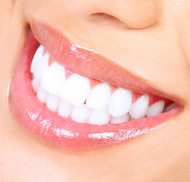DIY Teeth Whitening: Activated Charcoal and Other Ways to Whiten
Posted by Simple Girl on 19th Dec 2017

Dirty, dingy teeth take a toll on your smile. Whitening toothpastes can remove simple surface stains, but these ubiquitous toothpastes don't deep clean your teeth, and it usually take six weeks of use to start noticing a difference.
Other teeth-whitening regimens, like strips and cleaning kits, can set you back a pretty penny. Before you spend your life savings on brand-name teeth whitening products, try these home remedies to shine up those pearly whites.
Activated Charcoal
One of the most effective ways to whiten your teeth is to use activated charcoal, which you can find at your local health food store. It comes in capsule form and in loose powder form, and when you brush with it, it binds to the stains on your teeth, absorbs them, and pulls them out.
Now, be warned that activated charcoal is very, very black, and when you apply it to your teeth, your mouth will be dark as night, and you may fear that the charcoal will stain your teeth. Fear not. Once you rinse the charcoal away, your teeth will be even whiter than before. However, the grout in your bathroom and your clean white shirt will turn permanently black if you spill it, so be careful.
To brush with activated charcoal, empty a capsule onto your toothbrush or dip your brush in some activated charcoal you've poured into a little pile on a piece of scrap paper, foil or other material. Brush your teeth in small circular motions for two minutes. Spit it out (carefully, so's not to get it on any grout!) and rinse your mouth. You might want to put on sunglasses first so that your shiny white teeth don't blind you.
Baking Soda and Hydrogen Peroxide
Baking soda has long been used for brushing teeth, and for good reason: According to the Journal of Dentistry, baking soda works better than toothpaste for removing plaque and keeping your teeth white. When it's added to hydrogen peroxide, an anti-bacterial agent that also whitens teeth, it packs even more of a punch.
Baking soda is pretty gritty, though, and if you use it straight up or too often, you can damage your tooth enamel. Instead, make a thin, kind-of-runny paste with baking soda and hydrogen peroxide. Make sure the paste isn't gritty. Brush your teeth with your usual toothpaste, rinse, then put a generous amount of the baking soda paste on your toothbrush and brush again for 30 seconds. Rinse your mouth well. As long as the paste isn't gritty, you can use this whitening remedy every day.
Apple Cider Vinegar
Apple cider vinegar is good for lots of things, including whitening your teeth. Studies show that apple cider vinegar works just as well as commercial teeth whitening kits, and it's a whole lot less expensive. It can take a month to see results, but with regular daily use, you may see whiter teeth sooner.
Because apple cider vinegar is acidic, it helps break down plaque and stains on your teeth. But you don't want to brush too hard with it or use it more than once a day, or it could damage your enamel.
To use apple cider vinegar to whiten your teeth, take a little swig and brush it all over your teeth with your toothbrush. Rinse well, then brush your teeth with your usual toothpaste to remove all traces of the vinegar.

